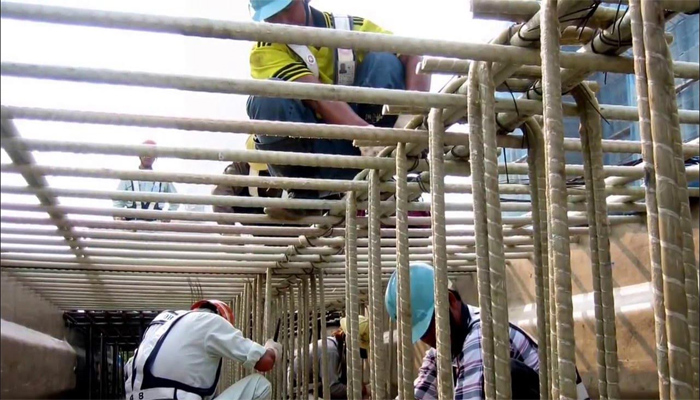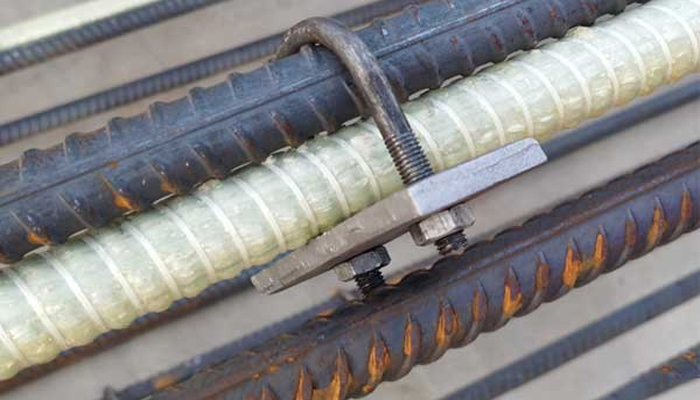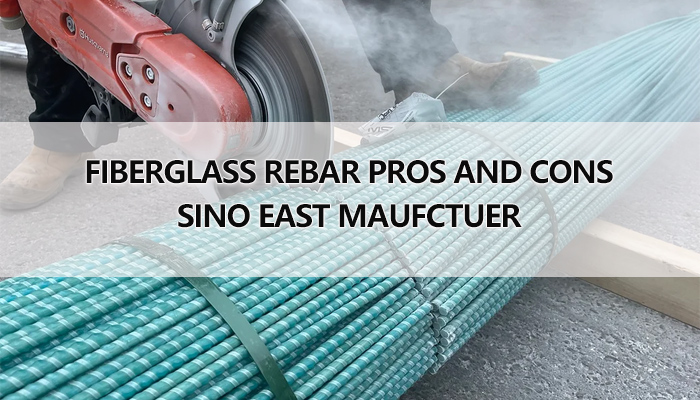In this post, we will look at the pros and cons of fiberglass rebar, as well as its benefits and drawbacks, to help you decide whether it is the correct choice for your building project.
Advantages of Fiberglass Rebar
Fiberglass rebar has several advantages over steel rebar, including:
- Corrosion Resistance: Because fiberglass rebar is corrosion resistant, it is an excellent choice for projects in severe conditions such as coastal locations, swimming pools, and chemical industries.
- Fiberglass rebar is much lighter than steel rebar, making it easier to carry, handle, and install.
- High Tensile Strength: Because of its high tensile strength-to-weight ratio, fiberglass rebar is a great choice for buildings requiring high strength and longevity.
- Low Thermal Conductivity: Because fiberglass rebar has low thermal conductivity, it is an excellent choice for projects requiring minimum heat transfer.
- Fiberglass rebar is simple to install since it can be cut, drilled, and bent without the use of specialist tools.

The Drawbacks of Fiberglass Rebar
While fiberglass rebar has several advantages, it also has certain disadvantages, which include:
- Fiberglass rebar is often more expensive than steel rebar, making it a less cost-effective option for various projects.
- Fiberglass rebar may not be commonly available, and obtaining it may take longer than traditional materials.
- Reduced Durability: While fiberglass rebar is corrosion-resistant, it may not be as robust as steel rebar in some applications.
- Damage: Fiberglass rebar can be damaged by impact, which can lower its tensile strength and impair its structural integrity.
- Difficult to Repair: Fiberglass rebar can be difficult to repair since it may necessitate the use of specialist tools and techniques.
Fiberglass Rebar Applications
Fiberglass rebar is extensively utilized in a variety of applications, such as:
- Fiberglass rebar is utilized in the construction of constructions such as bridges, high-rise buildings, and residential dwellings.
- Fiberglass rebar is utilized in infrastructure projects like roads, highways, and airports.
- Fiberglass rebar is utilized in water management systems like dams, canals, and water treatment plants.
- Fiberglass rebar is utilized in landscaping projects like green roofs, gardens, and parks.
- Fiberglass rebar is utilized in artificial reefs because it creates a long-lasting, corrosion-resistant structure for marine life to thrive in.

Steel Rebar Comparison
While fiberglass rebar offers numerous advantages, it is critical to compare it to steel rebar when determining which material is best suited for your project. Here are some important distinctions:
Steel rebar is less expensive than fiberglass rebar in general.
Steel rebar is more durable than fiberglass rebar in some applications.
Corrosion Fiberglass rebar is more resistant to corrosion than steel rebar.
Tensile Strength: The tensile strength-to-weight ratio of fiberglass rebar is higher than that of steel rebar.
Steel rebar is easier to install than fiberglass rebar because it can be bent and cut without the use of specialist tools.
Conclusion
Fiberglass rebar is a composite material that offers numerous benefits, including high tensile strength, corrosion resistance, lightweight, flexibility, and low maintenance. However, it also has its drawbacks, such as high initial cost, limited durability, susceptibility to damage, limited availability, and repair difficulty.
Fiberglass rebar is commonly used in various applications, including construction, marine construction, infrastructure, landscaping, and automotive.
